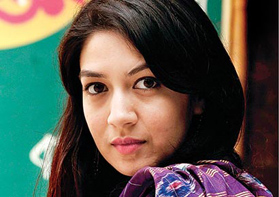Set in the aftermath of Bangladesh’s war of independence, author Tahmima Anam’s second novel The Good Muslim reflects her compassion for her country and the vicarious suffering she shares with her countrymen.
Second in the trilogy, The Good Muslim is a tale of a Bangladeshi family post independence; while the first book in the series A Golden Age, which was published in 2007, depicts the era of the war of independence against Pakistan in 1971.
“I was not born at the time of the war but I used to hear all these stories in our family. I did a lot of research, heard stories from my father, how he was trained in a camp in India... One of my uncles was a guerilla. I have tried to weave in bits of that into the character of Sohail in my book,” explains Tahmima.
Talking about what she likes to read, she says, “I love Indian authors. Amitav Ghosh and Anita Desai are my favourites… even some Pakistani writers. Also, there are some fabulous Bengali writers like Selina Hossain.”
Full report here DNA










